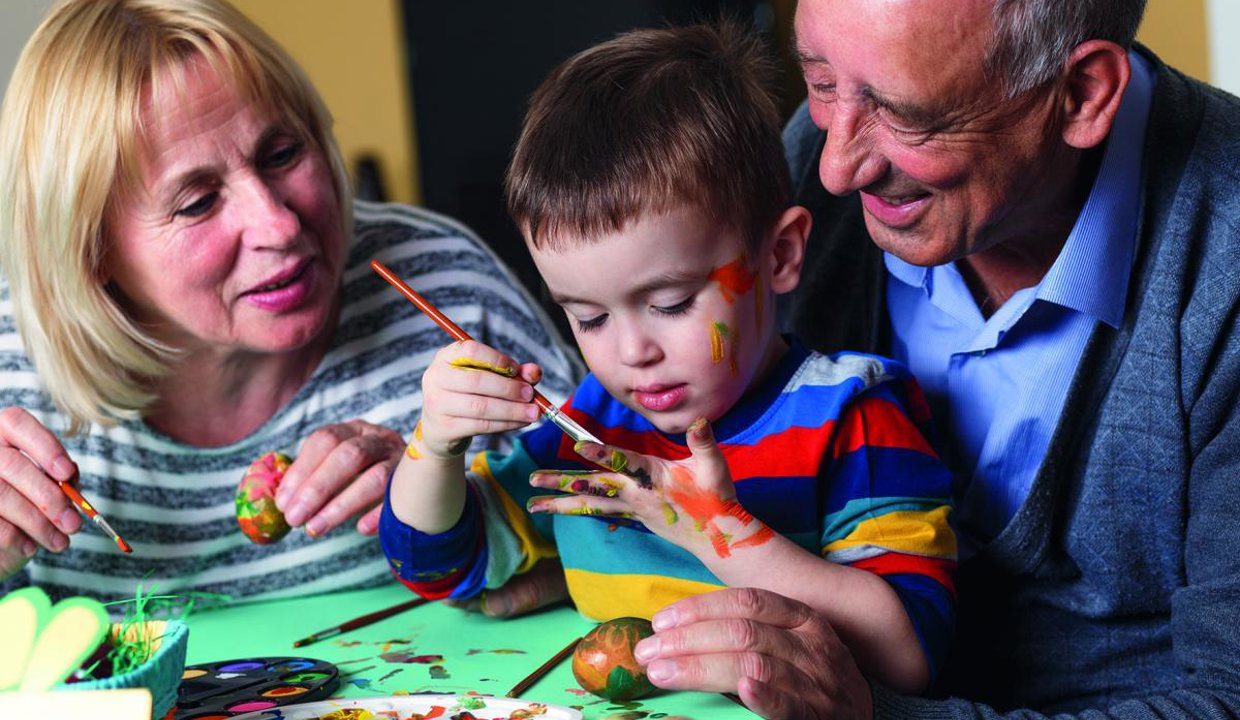Kinship care
Introduction
When parents are unable to look after their children, relatives or family friends will sometimes step in to help.
A Kinship Carer is someone that cares for a child who is not their own, but is either related to them or has a close relationship with the child.
There are two types of this type of carer:
- Informal Kinship Carer - when a familial or private arrangement is made
- Formal Kinship Carer - where children are placed by a local authority or the courts.
The Kinship team in East Dunbartonshire can give support, information and advice to kinship carers, so they are properly equipped to meet the needs of the children and young people in their care.
For more information call the team on 0141 777 3003.

Kinship Care is an arrangement for a relative or close friend to provide care for a child.
There are many such arrangements where children are placed by their parents with family or friends without the involvement of the local authority. Formal Kinship Care only applies to children who are Looked After and Accommodated by the local authority and placed by the local authority with Kinship Carers and eligible children who are subject to, or whose carers are considering applying for, a Kinship Care Order as outlined in Part 13 of the Children and Young Persons (Scotland) Act 2014 and the Kinship Care Assistance (Scotland) Order 2016. Support to other children who are placed in the care of family or friends by their parents would not be considered under these procedures as this is a private family arrangement.
In terms of children, an eligible child is a child who:
- Is or was previously looked after
- Was placed with the involvement of the local authority
- Is at risk of becoming looked after.
Assessments of Kinship Carers are carried out by Social Workers from the Care Planning and Placement Team. The assessment will focus on how carers can meet the needs of the child as outlined in a child’s plan. The assessment also needs to identify what supports the carers need to enable them to meet the child’s needs.
The assessment must include:
- A Protection of Vulnerable Groups application should be undertaken in respect of the applicant/s and a disclosure check should be undertaken for members of the household who are over 16 years of age
- A health reference on all adult members of the household
- Two references from people out with the immediate family at least one of which must comment on their parenting ability
- A Kinship Care Agreement which sets out the responsibilities of the Kinship Carer and the Social Work Department
- Local Authority checks to be carried out on all members of the household and if they live in another local authority area record checks must be carried out by that authority.
The Kinship Care allowance is paid at the following rate:
- 0-4yrs: £128.22 per wk
- 5-10yrs: £146.05 per wk
- 11-15yrs: £181.81 per wk
- 16+ yrs: £221.13 per wk
NB. This is the total allowance and any entitled benefits will be deducted prior to payment. (Allowance correct as @ Oct 2016)
Support via the Carers Act
As of 1st April, kinship carers were given rights to access support under the Carers (Scotland) Act 2016 where they meet the definition of a carer, even if they are in receipt of kinship care allowance.
Under the Carers Act, a kinship carer would be eligible for support if:
they are still regularly supporting the parent of a grandchild due to addiction, disability or mental health the child they are supporting could have mental health issues or disabilities. The child who is in kinship care could meet the definition of a young carer if:
The kinship carer has their own long term health conditions.
Further information regarding Kinship Care can be found at:
For further information, contact the Care Planning and Placement Team on 0141 777 3003.
